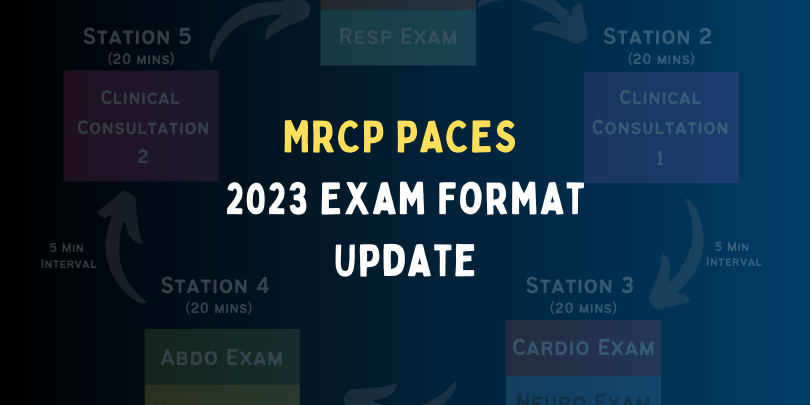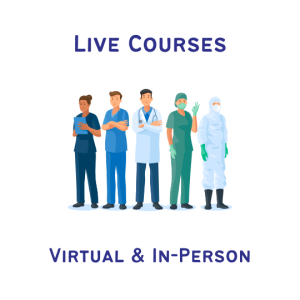
Published September 26, 2023 | Updated May 28, 2024
By David T. Otuonye
David is an IMT junior doctor with an interest in Endocrinology. He enjoys all things basketball, film and RnB music.
After passing the gruelling MRCP Part 1 and Part 2 Written exams, the PACES exam is the final obstacle before receiving the coveted MRCP UK diploma and becoming a part of a world-renowned prestigious body of doctors – the Royal College of Physicians (London, Edinburgh, or Glasgow).
The exam is relentless and demanding, with many having to take several attempts to clear the exam.
As an aside, candidates technically do not have to attempt the PACES exam only AFTER passing the MRCP Part 2 Written exam. It is permissible to attempt PACES before the Part 2 Written (i.e., after passing the Part 1 exam). Personally, I would advise passing Part 1 and 2 Written first to get them out of the way as the PACES exam is more a test of clinical skills rather than just knowledge.
If you explore the internet, you can very easily find loads of different personal anecdotes and tips (of varying quality) for how to pass this difficult exam. Fortunately, all the best advice that has been proven to aid exam success has been organised into one place – this article. As someone who passed PACES on my first attempt, I will also include personal tips that were invaluable to my success.
First Things First! – Plan your Preparation
A popular saying is, ‘If you fail to prepare, then prepare to fail!’ However, the first step of exam preparation is having a solid plan for this.
This especially involves setting aside adequate time for revision and practice.
How Long Should I Take to Prepare for PACES?
There is a wide variation of opinions on what constitutes the ‘correct’ amount of time to prepare.
I would say that one should set aside four to six months dedicated to consistent PACES revision and practice:
PACES exam practice should be focused. It is advisable to avoid revising for PACES around foreseeable major life events such as one’s own wedding or during a pregnancy/childbirth.
For many doctors, exam preparation will likely be done while working an intense rota with long days and night shifts – another reason why early revision planning is vital for success.
Having a revision timetable incorporated into these busy working weeks can be very beneficial, as much of the revision and practice will have to be done in your free time.
Getting a PACES buddy
I believe that this is one of the key aspects of PACES revision that can reap great rewards – a PACES buddy.
This is a colleague (or colleagues) who is also taking the PACES exam, and ideally, the individual should be just as motivated (or even more so) to pass as you are.
You can take this a step further by joining a PACES study group or WhatsApp group chat where you can exchange tips and arrange revision sessions.
By having a PACES buddy this will help you in pushing yourself, as there would be someone holding you accountable in revision sessions. My colleagues and I used a PACES WhatsApp group chat to notify each other of good PACES cases on the wards and ad-hoc PACES teaching sessions organized by keen consultants.

Deliberate and Consistent Practice
The PACES exam is a test of a physician’s practical clinical acumen applicable to day-to-day practice. It is erroneous to think that success in this exam will come from just doing question banks and book reading. This may have worked for the Part 1 and Part 2 Written exams, but it will not work for PACES.
PACES success requires four to six months of deliberate and consistent clinical examination practice. What does this look like? This means practising examining patients whenever the opportunity presents itself and having a well-rehearsed structured approach to your examination.
You and your PACES buddy should aim to hunt down patients on the wards with good clinical signs and aim to practice the relevant examination under timed conditions if possible. Get a senior colleague to critique your exam technique; it is very easy to identify a candidate who is not comfortable doing a particular physical examination.
Remember that practice does not automatically make perfect, but perfect practice does! Practice the correct sequence of all physical examinations repeatedly (at least 20-30 times), until they become second nature. This is so that you can then focus on identifying clinical signs with confidence (and not on what the next step in the examination is!).
It is the quality of the revision hours that counts, not just the number of hours in and of themselves. By doing deliberate and consistent practice, greatly increases one’s chances of successfully passing the PACES exam.
5 Top Tips for Deliberate PACES Practice
Making use of PACES Revision Resources
Although the majority of MRCP PACES revision should be deliberate practice, many PACES revision resources can help supplement your practice. An article discussing the best MRCP PACES resources can be found here on MedCourse.
You can listen to PACES podcasts during your daily commute.
It is important to invest in a good PACES course. This is a proven way to boost your chances of success.
At times, searching high and low on the wards for PACES patients can be inefficient and difficult – the patient may be too ill to examine, unwilling or even asleep!
Seeing a variety of excellent PACES patient cases under timed exam conditions in a PACES course is invaluable.

PACES Exam Day
The Days Leading Up to the PACES Exam
PACES is a relentless exam, and one must be very focused in every station throughout the duration of the exam. Therefore, it is important for you to get a good night’s sleep the night before the exam to maximise your brain power on exam day.
Working continuously in the last few days before the exam may do more harm than good!
As most candidates’ exam centres will be some distance away from home, it is advisable to plan in good time how you are going to get there. To avoid any on-the-day mishaps like significant traffic or train delays, many candidates find accommodation (e.g. a hotel room) near the exam centre and get there the day before.
It can also be useful to research your PACES exam centre to ascertain what area of medicine it is well known for (for example, a tertiary centre known for liver transplants), as this may reveal that a particular case is more likely to come up. However, do not rely solely on this and ensure you have covered all aspects of the exam curriculum so that you are not ‘caught out.’
On the Day
Here are some top tips to maximise success on the day:
7 Top Tips on the PACES Exam Day
After the PACES exam
Whatever the outcome, it is an achievement in itself to get to the end of the PACES exam. Congratulate yourself in whatever way you choose!
It is very difficult to predict your result immediately after finishing the exam – many candidates are adamant that they failed only to receive a PASS result.
So put it behind you and await your result.
Failing and Resits
It is never a nice feeling knowing you have been unsuccessful in passing the PACES exam after months of diligent preparation.
However, hopefully, candidates can find some reassurance in the fact that failing the PACES exam is not uncommon – many exemplary clinicians had to resit PACES multiple times!
It would be wise to book a re-sit as soon as possible, especially if you felt that you were well prepared for the exam.
Requesting detailed feedback from the examiners is a great way of recognising where you have may lost marks so that you can work on these deficient areas with more care in time for the next diet. Good luck!














